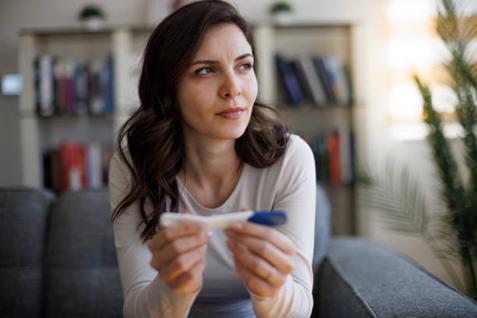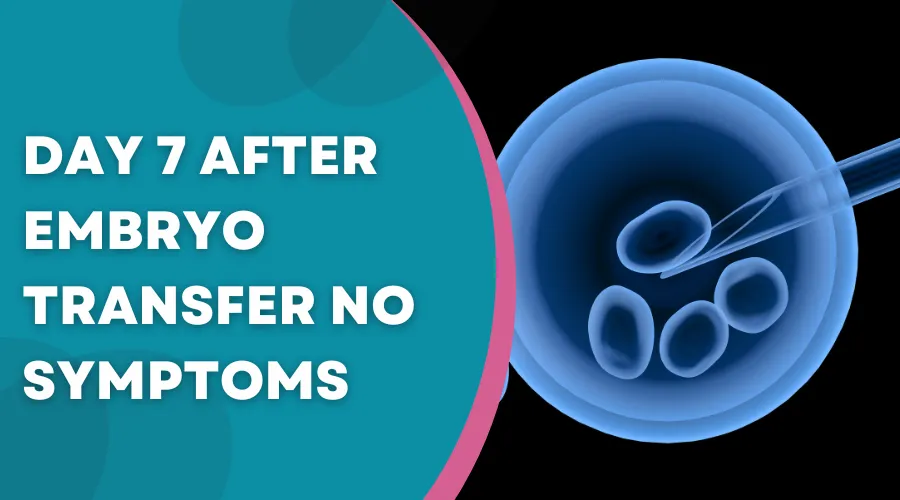Day 7 after an embryo transfer is a crucial yet anxious period for many hopeful parents. At this stage, the embryo is expected to implant into the uterine lining, which can often lead to early pregnancy symptoms. However, it is not unusual for individuals to experience no symptoms during this time, leading to concerns about whether the procedure was successful.
According to fertility specialists at Nisha IVF Centre, a state-of-the-art facility in Ahmedabad:
“Hope and anxiety often walk hand in hand, starting from the very first IVF consultation and growing as the process unfolds—especially after the embryo transfer, when emotions are at their peak. But, we must understand that each body reacts differently to embryo transfer, and the absence of symptoms doesn’t necessarily indicate a failed transfer. The body’s lack of symptoms at this stage could simply mean that implantation is progressing without noticeable signs.”
When Do Symptoms Usually Start After Embryo Transfer?

Symptoms after an embryo transfer can vary significantly between individuals. For some, early pregnancy signs like cramping, bloating, or fatigue might begin as early as 5-7 days after the transfer. Others might not notice any symptoms until weeks later when hormone levels rise significantly.
Dr. Nisarg Patel, a distinguished IVF doctor in Ahmedabad, adds:
“Typically, the earliest signs of pregnancy are often subtle and may be confused with the side effects of hormone medications taken during the IVF process. How long these symptoms last depends on various factors, including hormone levels and individual body responses. However, many symptoms—such as breast tenderness or mild cramping—may last until the first ultrasound confirms pregnancy.”
Is It Normal to Have No Symptoms on Day 7 After Embryo Transfer?
It is normal to be on day 7 after embryo transfer with no symptoms. IVF specialists frequently reassure patients that the absence of symptoms does not mean the procedure was unsuccessful. Early pregnancy symptoms can vary widely, and some women may not feel anything until much later in the process. The hormonal changes in your body may not always lead to noticeable physical sensations.
The fertility experts at Nisha IVF Centre explain:
“In many cases, the body is simply adjusting to the embryo, and symptoms may take time to develop. Not experiencing symptoms at this point should not be a cause for alarm.”
Possible Reasons for No Symptoms 7 Days After Embryo Transfer
Several factors could explain why some individuals don’t experience symptoms at this stage. Here are a few common reasons:
Individual Body Response: Each body reacts differently to embryo transfer and hormone fluctuations.
Hormonal Medications: Medications used during IVF can sometimes mask or delay the onset of early pregnancy symptoms.
Timing of Implantation: The embryo might have implanted later than expected, delaying the appearance of symptoms.
Dr. Nisarg Patel, an eminent IVF doctor in Ahmedabad, explains:
“Symptoms or the lack thereof don’t always correspond to what’s happening at a cellular level. Some women experience no symptoms but still have successful implantation and pregnancies. Early pregnancy symptoms are highly variable and should not be the sole indicator of success.”
No Symptoms on Day 7: What Does It Mean?

Having no symptoms on day 7 doesn’t necessarily indicate a positive or negative outcome. The absence of symptoms may reflect your body’s unique response to the embryo transfer. Some women may feel symptoms as early as day 5, while others might only notice changes after a pregnancy confirmation via blood tests or ultrasound.
As mentioned, every IVF journey is different, and no two bodies react similarly. So, whether you’re feeling symptoms or not, it doesn’t provide a conclusive answer about the success of the embryo transfer.
What Should You Do If You Have No Symptoms?

If you’re 7 days post-embryo transfer and not experiencing any symptoms, here are a few practical steps to keep in mind:
Stay Calm: It’s important not to panic or over analyze your body’s reactions. Everyone’s experience is different.
Follow Medical Guidance: Stick to the treatment plan provided by your fertility doctor. Avoid self-medicating or making changes to prescribed treatments without consulting a medical professional.
Focus on Relaxation: Stress can negatively impact your body during this critical time. Engage in activities that help you relax and reduce anxiety, such as meditation or light exercise.
Stay Hydrated and Rest Well: Proper body care, such as staying hydrated and getting adequate rest, can support well-being.
Dr. Himali Maniar, an accomplished fertility doctor in Ahmedabad, advises:
“The best approach during this time is to follow your doctor’s recommendations and stay patient. Stressing over experiencing symptoms, or the lack of them, won’t change the outcome. IVF success is complex, and symptoms aren’t always a reliable indicator of what’s happening inside your body.”
Conclusion: Trust the Process and Stay Positive
In the world of IVF, it’s essential to trust the process, even when things feel uncertain. Not experiencing symptoms by day 7 after embryo transfer is common and doesn’t indicate a negative outcome. Our bodies respond differently, and symptoms—whether present or absent—should not be your primary measure of success.
It’s crucial to remember that IVF outcomes are best confirmed by medical tests, not by how your body feels. Staying positive, patient, and calm is vital. The emotional journey can be challenging, but with proper guidance, you can confidently navigate this phase.
FAQs
Can I take a pregnancy test on day 7 after embryo transfer?
Are cramps common on day 7 after embryo transfer?
Should I be worried if I feel nothing after embryo transfer?
What lifestyle changes should I make after an embryo transfer?
Can stress affect the success of an embryo transfer?
Disclaimer: The information shared in this content is for educational purposes only and not for promotional use.


